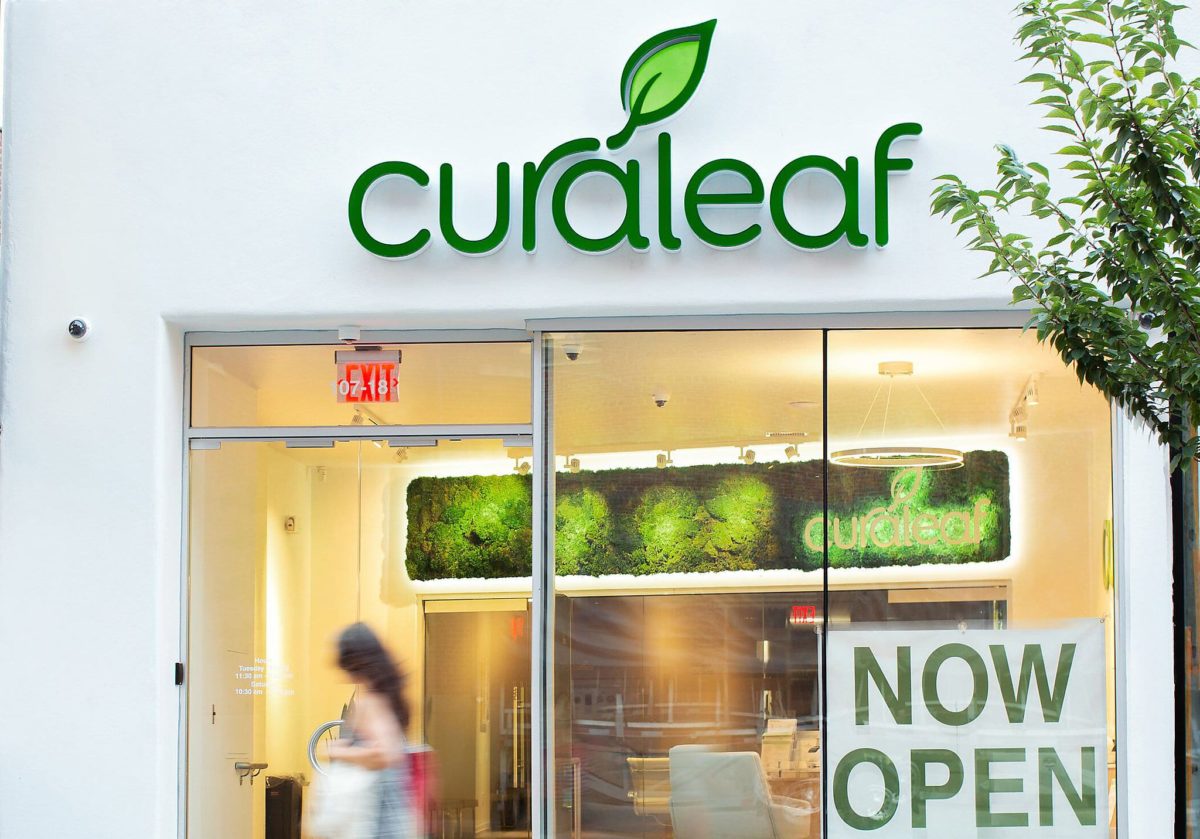Although recreational marijuana retail stores are unlikely to open in Connecticut or New York until next year, the nation”™s largest cannabis operator, Curaleaf, is reminding interested adults that there are benefits to getting their medical marijuana cards now.
 “They haven”™t gotten their medical card. They don”™t have to wait what could be one, one-and-a-half years (to get a medical card),” Curaleaf Dispensary Manager Stacia Woodcock told the Business Journal. “They can go through the medical program now.”
“They haven”™t gotten their medical card. They don”™t have to wait what could be one, one-and-a-half years (to get a medical card),” Curaleaf Dispensary Manager Stacia Woodcock told the Business Journal. “They can go through the medical program now.”
“A doctor today can essentially certify for any reason they see fit,” said Woodcock, a registered pharmacist who formerly worked at Walgreens in New York City. “That opens it up for a lot of people. So many people are coming out of Covid-19 with PTSD, anxiety and other conditions, and they”™re looking for more holistic approaches to what they”™re doing and how they”™re living.”
While many people think medical marijuana is still used primarily to treat such conditions as glaucoma, arthritis and a host of other debilitating diseases, “chronic pain” is indeed listed by both the Connecticut and the New York Departments of Consumer Protection as qualifying conditions ”” with some qualifications.
New York defines “chronic pain” as that which “degrades the health and functional capability of the patient.” Connecticut requires chronic pain “of at least 6 months duration associated with a specified underlying chronic condition refractory to other treatment intervention.”
Nevertheless, Woodcock said, “Practically anyone over 35 has chronic pain of some kind, and they may not want to be taking an opioid or Advil every day.”
Headquartered in Wakefield, Massachusetts, Curaleaf ”” which has four medical marijuana operations each in Connecticut (including Stamford) and New York (including Newburgh) ”” expects to triple its cannabis production output in the Nutmeg State once regulations are finalized, at which point it may also add more retail stores.
There is plenty of money to be made in both medical and recreational cannabis. Curaleaf is the dominant force, with a market cap of $8.23 billion dwarfing that of its nearest competitor, Canadian firm Canopy Growth, at $6.83 billion.
Curaleaf”™s second-quarter earnings were $312 million, up 20% sequentially and 166% year-over-year. At its Aug. 9 earnings call, Executive Chairman Boris Jordan noted that the expansion of Connecticut, New York and New Jersey through legislation represents “a potential new $8 billion annual addressable market opportunity.”
According to a Statista report published last October, U.S. medical marijuana sales could reach nearly $12 million in the U.S. On Aug. 25, Market Research Future reported that the medical cannabis market is anticipated to register a compound annual growth rate of 18.4% to achieve a value of $33.2 billion by 2027.
In its most recent report, the Connecticut Office of Fiscal Analysis said that the state could earn $4.1 million in state and local marijuana taxes for fiscal year 2022, which would rise to $73.4 million by FY 2026.
New York Comptroller Thomas DiNapoli”™s office is estimating the Empire State will take in $20 million in marijuana tax revenue in fiscal year 2022, increasing to $245 million by FY 2024.
Woodcock said another factor playing into the windfall is the fact that legalization should effectively end the sector”™s black market.
“You have access to a registered pharmacist with expertise in a dispensary,” she said. “And they”™re selling regulated products that are tested and consistent, with the same potency, and you know exactly what”™s in it ”” as opposed to buying something off the street that”™s been grown in a basement where rat poison is present.”
Woodcock also emphasized that the new line of marijuana products coming to market are not limited to smoking or other inhalant measures. While gummies and oils have become more familiar, Curaleaf is rolling out Select Squeeze, which allows a consumer to pour a 5mg dose of THC into the beverage of their choice.
Effects of the product ”” which comes in lemon-lime, watermelon, strawberry-lemonade and “hint of sweet” flavors ”” can be felt in about 15 minutes, Woodcock said.
While recreational marijuana is still illegal at the federal level, there has been some movement there as well.”
U.S. Senate Majority Leader Charles Schumer (D-New York) has introduced a draft bill, the Cannabis Administration and Opportunity Act, which would legalize cannabis at the federal level. A recent Pew Research Center poll found that about 60% of Americans favor legalizing marijuana for both medical and recreational use.






















